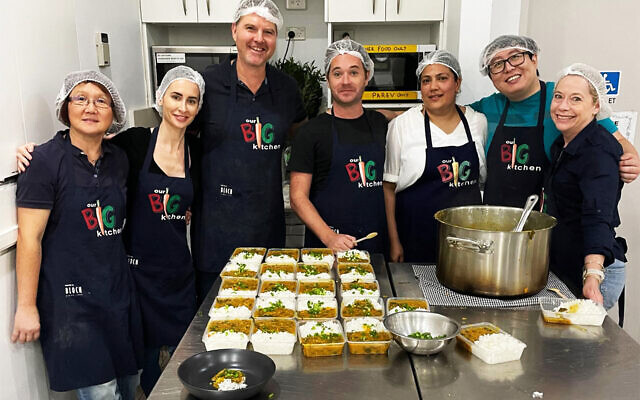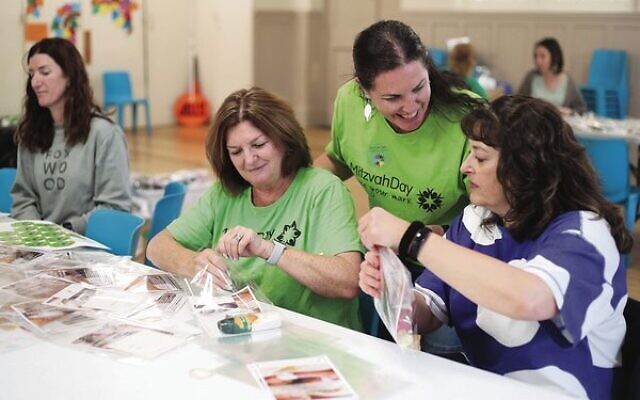A single act of altruism makes you feel good
Studies show that when we engage in altruism, our brain rewards us by flooding the mesolimbic pathway of our brain – the reward centre – with feel-good chemicals such as serotonin, dopamine and oxytocin.
Why do we give back to community? Why should we?
Many theories have been expounded, both social and neurological.
One theory that is gaining greater acceptance, is based upon brain chemistry. It provides scientific corroboration for what is colloquially known as “the helper’s high”. It is the feeling after performing an act of kindness, making a donation to charity, or doing volunteer work. Although you were the giver, you feel like you received at least as much, if not more than you gave. We have all experienced that feeling.
Studies show that when we engage in altruism, our brain rewards us by flooding the mesolimbic pathway of our brain – the reward centre – with feel-good chemicals such as serotonin (mood chemical), dopamine (reward chemical) and oxytocin (love hormone).
When we engage in altruistic activity, our brain makes us feel good. Very good, in fact. It is the same part of the brain that lights up when we think about food or sex. Think about that for a moment. Altruistic activity produces the same result in our brain as our experience of a good meal or sexual activity!

Three things to observe about the neurological basis for altruism.
First, the same system in the brain is triggered when giving as when receiving. You feel great, and the recipient feels great as well. You both benefit!
This explains why even anonymous altruism feels good. If you give anonymously, without ever meeting the recipient, you will trigger the same reward centres as if you had earned the reward yourself. Even though you were the giver, you feel like you are the person who has in fact ‘received’.
Second, and although gift and receipt form part of the same system in the brain, the precise neural pathway is different. If you give, then you release more oxytocin (the love hormone). Curiously therefore, altruism – even anonymous altruism – activates the same parts of the brain that are triggered when humans look at their own babies and romantic partners. When you volunteer, you experience both personal reward and love.
Third, the effect is transient. But it is repeatable. A single act of altruism makes you feel good. Consistent effort keeps the feeling going. There is thus a virtuous circle. The more you give, the more you feel like giving. I suggest that is no coincidence. Our brain wants us to repeat that pattern of selflessness.
There are also studies which show that volunteering has physical benefits. Volunteers have lower blood pressure, reduced stress levels, increased memory and executive function, and they live longer. Here is an extraordinary statistic – a meta-survey of 73 studies and papers concluded that volunteering is associated with a 24 per cent reduction in mortality risk for older adults. That was even after adjusting for other lifestyle variables.
As yet there is no conclusive reason as to why that is so, but the link between altruism and better physical health is clear. If altruism was available on prescription, your GP would be prescribing a daily dose.
Why would we, as humans, be chemically programmed in this manner? It is not certain. Some social scientists suggest that it is due to the social development of our ancestors. A creature that only cares for itself, will not last long in nature. Creatures that care for their own family unit will last a little longer. The chance of survival of a family member is increased, but the ultimate outcome is a still a lottery. But creatures that collectively care for the entire tribe, outside of their own immediate family? That protects the entire species, which is the key to successful evolution.
Our brain encourages us to look beyond our own material desires and to provide selflessly for others. Our brain encourages us to do so by making the selfless act a greater benefit than the selfish one.
The evidence is therefore clear – volunteering makes us happier and it makes us healthier. The satisfaction of volunteering is its own reward.
To those who volunteer, you have made our world and our Jewish community a better place. You have worked tirelessly and selflessly for the benefit of others. But I have given away your secret. You felt great while doing it, didn’t you?
Daniel Aghion is the president of the Jewish Community Council of Victoria.
This is a modified version of a speech first given at the annual B’nai B’rith Menorah Awards.


comments